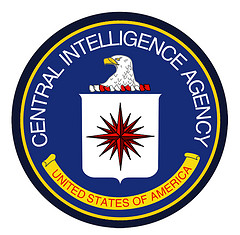Previously published at WGBH News.
Q: Does The Boston Globe disclose that John Henry owns the paper whenever it reports on one of his other business interests? Or does it omit that information, leaving less-savvy readers in the dark?
A: Yes.
Tuesday was a case in point. On page one, the Globe’s Brian MacQuarrie reported that the Stop Handgun Violence billboard on Lansdowne Street facing the Massachusetts Turnpike may be coming down by next March. The new owner of the property — Fenway Sports Group, which owns the Red Sox — declined to comment, according to the story. Nowhere did we learn that Henry is Fenway’s lead investor.
On the front of the Metro section, though, Travis Andersen disclosed the connection in an update on an elevator accident at Fenway Park that left a woman seriously injured. Andersen wrote: “A spokeswoman for the Red Sox, whose principal owner, John Henry, also owns The Boston Globe, declined to comment Monday, citing the ongoing review.”
And so it goes — the most prominent recent example being the Globe’s reporting on Jared Remy, who has been charged with murdering his girlfriend, Jennifer Martel. Remy is the son of Red Sox broadcaster Jerry Remy, and the Globe has weighed in with some extremely tough stories on the entire family (original here; most recent follow-up here). Those articles, though, omitted the Henry connection, even as op-ed columnist Alex Beam included it when he wrote a piece arguing that Jerry Remy should be able to keep his job in the broadcast booth.
I asked Globe editor Brian McGrory whether he thought the Henry connection should have been made clear in the Remy coverage and the billboard story. “Our disclosure policy would apply to the stories that you mention,” McGrory replied by email, saying he would “renew our vigor in terms of letting readers know.”
I also asked Globe spokeswoman Ellen Clegg whether there was any specific policy she could cite. Her response, also by email:
Our policy is to disclose John Henry’s business interests when it’s relevant to the story.
By now, we assume the vast majority of Boston Globe readers are aware of Mr. Henry’s ownership of the Red Sox and therefore do not feel the need to disclose it in every story about the team.
There’s an additional factor in the case of Jerry Remy’s ongoing employment: he works for New England Sports Network, not the Red Sox. Eighty percent of NESN is owned by Fenway Sports Group, so Henry is essentially the top executive. When I asked Clegg if she thought most Globe readers were aware of that, she responded, “No, I don’t assume that most people know about NESN.”
Disclosure may be good for the soul, but when you think about some of the larger conflicts of interest that news organizations have to navigate, the Globe-Red Sox connection can seem trivial. To take just one example: Wouldn’t it have been nice to know that the media companies that own all of our network news divisions and cable news channels were lobbying the FCC for deregulatory goodies at the same time they were providing supine coverage of the run-up to the war in Iraq? So yes, the Globe should disclose, but some perspective is necessary as well.
Few would argue that the Globe should run a disclosure when it covers the Red Sox as a baseball team (although columnist Dan Shaughnessy did this morning, jokingly calling Henry the “greatest person ever”). The paper’s coverage of the boss’ other businesses has been tough and independent. We’re still in the early stages of Henry’s ownership of the Globe, and it’s going to take a while to get the disclosure thing right.
And it could be worse. After all, Amazon.com, founded by Washington Post owner Jeff Bezos, does business with the CIA.

